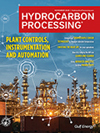Repsol committed to the circular economy of plastics
REPSOL--Repsol has been for years committed to innovation, in order to increase the circularity and efficient use of the plastic materials it produces. The company is carrying out multiple projects to improve its products end of life management.
After Repsol’s adherence to the “Pact for a Circular Economy” in October 2017, promoted by the Spanish Ministry of Agriculture and Fisheries, Food and the Environment; and the Spanish Ministry of Economy, Industry and Competitiveness, the company's chemical business has signed up a voluntary commitment to increase the circularity and efficiency of resources.
This commitment is achieved through Repsol’s adhesion to "Plastics 2030 - Voluntary Commitment”.
During the last years, anticipating society’s demands and intending to offer its customers differentiated products, Repsol has been involved in many innovation projects to increase the circularity and efficiency of the plastic materials the company develops, both objectives of the above mentioned voluntary commitment.
Some examples of Repsol’s current projects in this line of work are:
•
•
•
• Zero: focuses
• BIO: biodegradable fossil-based polyolefins, designed to solve specific recycling difficulties for certain applications, namely in agriculture, that would otherwise end up in landfills or in the environment.
Additionally, Repsol has been actively participating and supporting “Operation Clean Sweep” (OCS), an international programme developed by the industry to help prevent pellet loss from getting into the environment. It aims to eliminate the loss of plastic material granules in its industrial centers, warehouses or during transport.
Once again, Repsol proves its commitment to the search and development of differentiated products and to continuously provide solutions to its customers and to society.






Comments